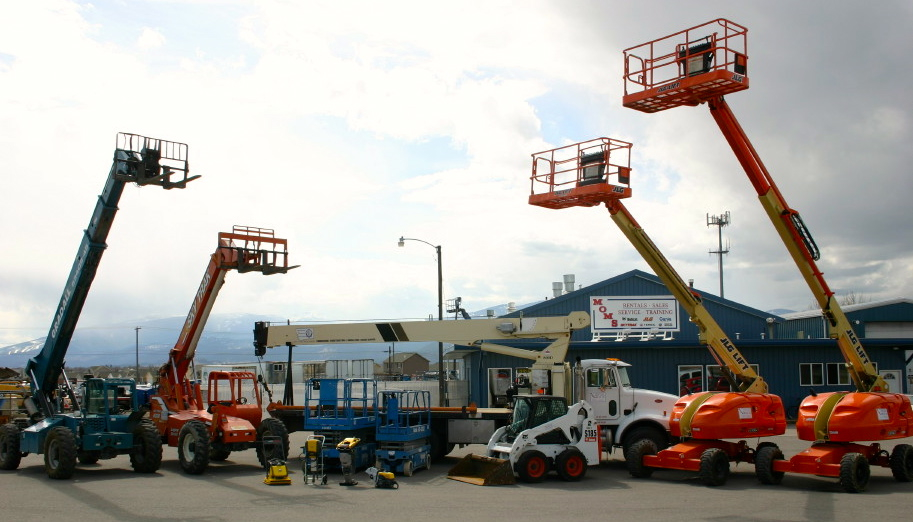Aerial Lift Rental: Versatile Lifting Solutions for High-Access Jobs
Aerial Lift Rental: Versatile Lifting Solutions for High-Access Jobs
Blog Article
Maximize Your Spending Plan by Recognizing the Costs Connected With Building Devices Services
Understanding the complete scope of costs linked with construction equipment services is crucial for optimizing your budget. What approaches can be employed to efficiently handle these costs and guarantee an extra effective rental experience?
Summary of Rental Costs
When thinking about building tools rentals, comprehending the associated prices is critical for efficient budgeting and project planning. Rental costs can differ considerably based upon a number of factors, consisting of tools kind, period of rental, and area. The first rental charge frequently shows the tools's market need and its associated operational capacities, affecting the overall cost.
Along with the base rental price, ancillary expenses may develop, such as transportation costs, gas additional charges, and maintenance costs. It is important to represent these additional expenditures to accurately examine the overall cost of renting out equipment. Moreover, the rental duration can affect prices; longer services might qualify for reduced prices, while short-term rentals may sustain higher everyday charges.

Breakdown of Rental Prices
An extensive understanding of rental rates is important for contractors and project managers intending to maximize their budget plans. Rental prices for construction equipment generally include numerous components, including base rates, time-based costs, and usage charges.
Base prices are the core costs linked with the rental of the tools, commonly established by the kind and size of the equipment. These rates can differ considerably, influenced by variables such as equipment need, accessibility, and local market patterns. Time-based costs, which might be daily, weekly, or monthly, serve to accommodate different task timelines and rental durations.
In addition, rental prices might include usage charges, which apply when devices is utilized beyond a specified threshold, guaranteeing that the rental firm can make up wear and tear. Seasonal demand variations can additionally impact rental prices, with peak construction periods usually regulating greater prices.
Furthermore, comprehending the rental company's policies relating to upkeep and insurance can provide further understanding right into the total cost framework. By assessing these parts, service providers can make enlightened decisions, making certain the selection of rental tools aligns with both job requirements and budget constraints.
Added Charges to Consider
Understanding the complexities of extra costs is essential for contractors to manage their overall rental expenditures effectively. Beyond the conventional rental prices, various auxiliary charges can significantly affect the overall expense of equipment leasing. These costs commonly include delivery and pick-up charges, which can vary based upon distance and logistics associated with transporting the devices to and from the task website.
Moreover, some rental business might impose gas surcharges if the equipment is returned with much less fuel than when leased. It look these up is additionally important to understand potential cleansing charges, specifically for customized tools that needs extensive maintenance after usage.

Completely assessing the rental contract and clearing up these extra fees upfront can aid service providers ensure and prevent unanticipated costs that budgets continue to be undamaged throughout the task lifecycle.
Upkeep and Repair Expenses
Regular upkeep and repair service expenditures are commonly overlooked variables that can significantly affect the total price of building equipment services. When renting out tools, it is crucial to take into consideration not only the rental fees however additionally the possible expenses connected with keeping the machinery in optimal operating problem.
Lots of rental business consist of fundamental maintenance as part of the rental arrangement; nonetheless, more unforeseen failures or substantial repair work can result in added expenses. It's vital to evaluate the rental agreement thoroughly to understand what upkeep solutions are covered and what duties fall on the tenant.
In addition, equipment that is not well-maintained can cause inefficiencies on the work site, potentially triggering hold-ups and raising task prices. To alleviate these dangers, it is suggested to perform routine evaluations and maintain open interaction with the rental service provider relating to any issues that develop throughout usage.
Insurance Policy and Obligation Costs
Insurance and obligation expenses are essential components that can substantially influence the overall expenditure of building devices rentals (mini excavator rental). These hop over to these guys prices make certain that both the rental firm and the client are shielded from possible monetary losses occurring from mishaps, damage, or theft during the rental duration

Furthermore, clients should recognize any type of deductibles or exclusions in the industrial tool rental near me insurance plan, as these can affect prospective out-of-pocket costs. Recognizing the conditions of any type of insurance coverage is important to prevent unanticipated prices. Inevitably, budgeting for insurance coverage and obligation expenses can assist make sure a smoother rental experience and shield against financial threats connected with construction jobs.
Conclusion
In conclusion, a detailed understanding of the prices associated with building equipment rentals is crucial for effective spending plan monitoring. Eventually, educated decision-making regarding equipment rentals contributes to the overall success of building undertakings.
Rental expenses can vary substantially based on several factors, including tools kind, period of service, and location (equipment rental company). The rental period can impact rates; longer services might qualify for discounted rates, while temporary services may incur higher daily costs
By conducting detailed research study and involving with respectable rental firms, contractors can properly navigate the intricacies of rental rates, inevitably optimizing their financial sources.
Past the basic rental rates, various supplementary charges can substantially influence the complete expense of tools rental. Rental business typically offer liability insurance coverage that covers injuries to third celebrations or damage to residential or commercial property, while tools damage insurance can cover the cost of repair work or substitute if the rented out devices is damaged.
Report this page